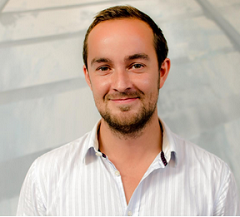What is Lendix about?
Lendix is an online marketplace for business loans, enabling investors to lend directly to prime small and medium sized enterprises. We started operating in France, making our first loans in April 2015. We’ve made 1.5M EUR of loans in our first month, and are on track for a similar number in May.We lend from 30,000 EUR to 1,000,000 EUR for 18 to 60 months with rates varying from 4% to 9%.
What are the three main advantages for investors?
We offer access to a largely untapped and high quality market, with low defaults and low prepayments. We have the same information as the banks via our Banque de France database membership. Last but not least, we charge no fees to lenders.
 What are the three main advantages for borrowers?
What are the three main advantages for borrowers?
We’re fast, easy and transparent:
– we make offers in 7 business days and our docs are written in plain French
– we guarantee the funding of all the loans we put on the platform
– we require no personal guarantees from the company directors
What ROI can investors expect?
5.5% to 6%.
How did you start Lendix? Is the company funded with venture capital?
Lendix was founded by Olivier Goy in Q3 2014.
France was one of the first countries to lift the legal uncertainties around crowdlending and we saw an opportunity to plug the funding gap that micro and small businesses suffer from. There is a vast amount of capital available to lend, but small businesses find that dealing with banks has become so painful and distracting that they effectively don’t even start the process. Our aim is to surprise borrowers with how painless it is to get a loan.
The company’s shareholders (apart from its leadership) includes a VC, Partech Ventures. Olivier has a long standing relationship with Partech, having worked there himself, and having had Partech has one of the shareholders of the Private Equity company he founded in 2001.
We also have a bank, an asset manager, a family office and a large corporate amongst our backers.
An important point is that Olivier, myself and the other main shareholders of Lendix have skin in the game: we have committed money to our institutional vehicle and lend to every company that comes on the platform, under the same conditions as all the other lenders. Continue reading



 What ROI can investors expect?
What ROI can investors expect? What are the three main advantages for borrowers?
What are the three main advantages for borrowers? What are the three main advantages for investors?
What are the three main advantages for investors?